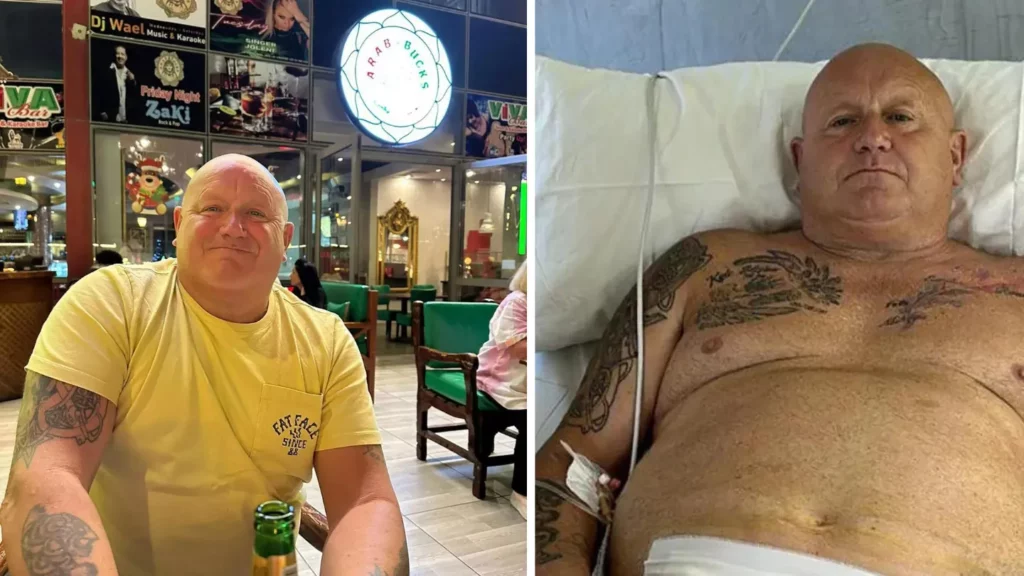Nigel Hunt, a 59-year-old father of three from the Isles of Scilly, was looking forward to his upcoming journey to Egypt with full enthusiasm. After a hectic period as a window fitter, he found himself in need of a well-deserved break, and Egypt appeared to be the ideal getaway.
Unbeknownst to him, a moment that appeared trivial at home was about to transform his dream getaway into an emergency. A planned getaway took an unexpected turn, transforming into an anxious struggle for survival, with Nigel battling for his life far from home.
Before going on his journey, Nigel felt what he first believed to be a minor sting on his abdomen while resting in bed at home. The bite initially appeared to be a trivial annoyance, but Nigel dismissed it, believing it to be of little consequence.
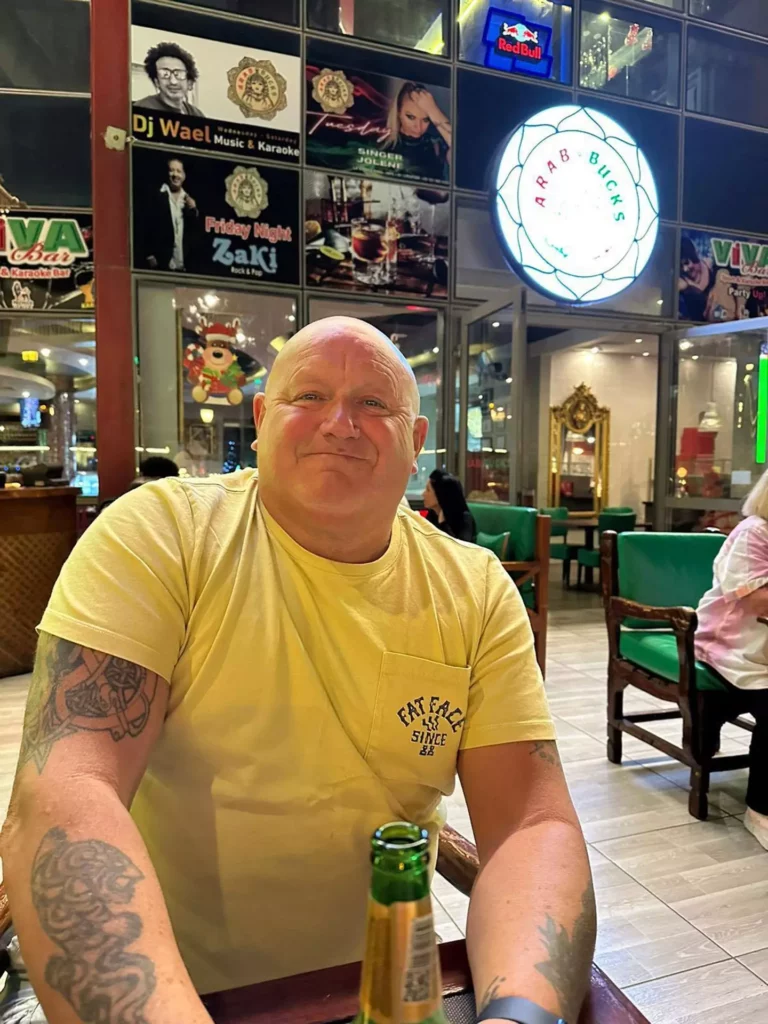
Oblivious to the hanging threat, he proceeded with his day, which included taking a ferry to Penzance and later flying from Bristol Airport to Sharm El Sheikh. The thrill of the journey quickly transformed into a nightmare that caught both Nigel and his wife, Sandra, completely off guard.
Initially, Nigel was in excellent spirits, proceeding with his journey without any hesitation. However, while he was in line to board the aircraft, the situation began to shift.
What started as minor pain quickly became a wave of nausea. “That’s when I started to feel nauseous and ended up in the toilets being violently sick,” he recalled.
The next six hours unfolded like a terrifying ordeal. Nigel struggled to maintain his composure, repeatedly reaching for the sick bag as he battled nausea during the flight.
Upon arrival in Egypt, the illness continued. Nigel and Sandra, believing it was just a matter of travel sickness or maybe a stomach bug, stopped by a nearby pharmacy.
Doctors prescribed antihistamines and antibiotics to treat what they believed to be a bite reaction. However, the following day, Nigel’s condition deteriorated further.
Despite the medication, he found no relief, and what he had initially dismissed as a minor bite was evolving into a much more serious issue. Nigel made his way back to the hospital, this time for a series of more comprehensive tests.
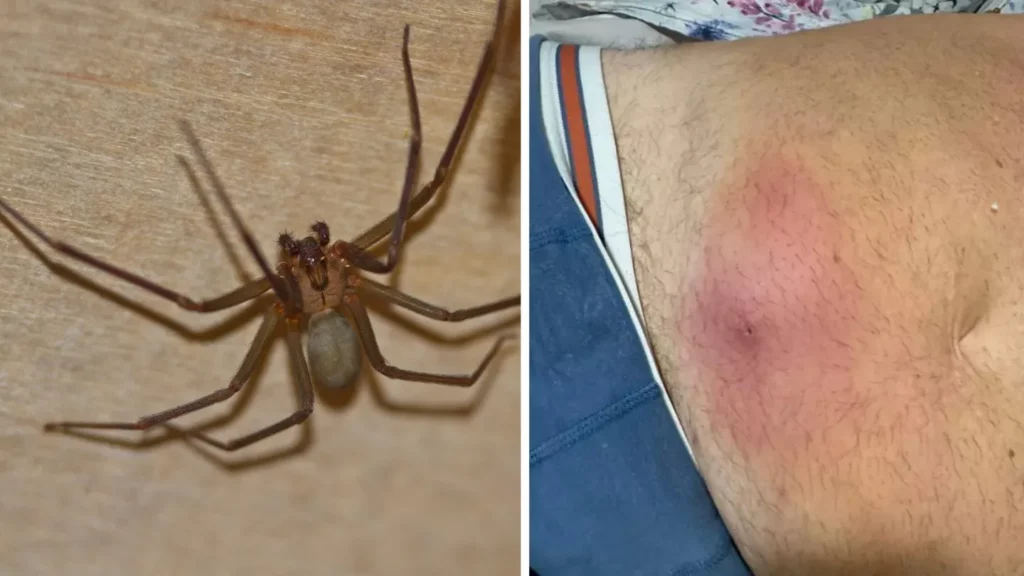
After undergoing blood tests, ultrasound scans, and enduring hours of waiting, the results left him in disbelief. The doctor revealed the unsettling information: the bite on his stomach was probably from either a false widow or brown recluse spider.
These species, though uncommon in the UK, are capable of inflicting venomous bites, and in Nigel’s situation, it led to necrotizing fasciitis—a lethal flesh-eating disease. Necrotising fasciitis is an uncommon bacterial infection that quickly advances, causing significant damage to the body’s soft tissue.
Timely treatment is crucial, as delays can lead to severe consequences. Nigel’s bite led to a serious infection, necessitating immediate surgery to eliminate the necrotic tissue.
“If I hadn’t been to the hospital for a second examination within six to 10 days, I would be dead,” Nigel said in retrospect. What started as a minor issue has escalated dramatically, transforming into a serious condition that demands ongoing care and attention.
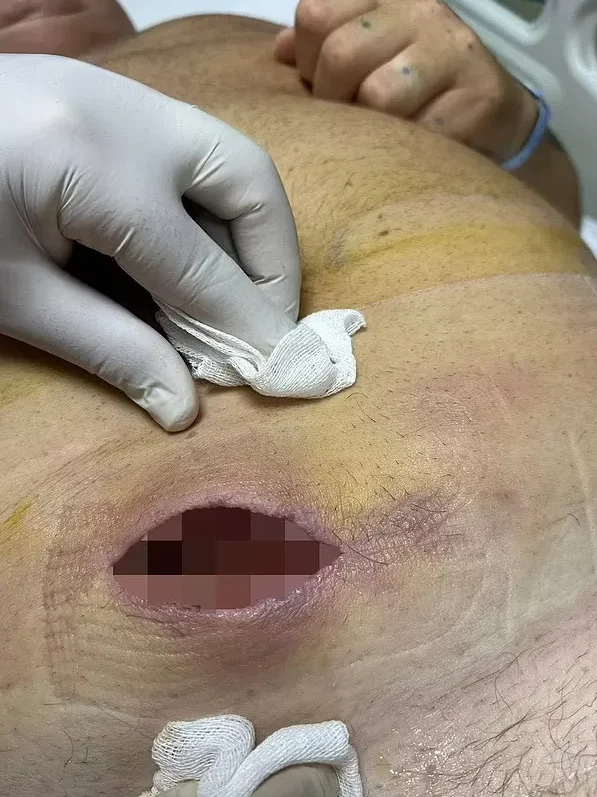
As the medical team raced against time, the critical nature of his condition was clear, with efforts focused on halting the advance of the flesh-eating bacteria. What was first thought to be a typical abscess has escalated into a critical situation.
Necrotizing fasciitis is a critical condition that demands immediate attention, involving the use of antibiotics and surgical intervention to eliminate the dead tissue. Medical professionals informed Nigel that his timely decision to seek help may have saved his life.
His treatment in Egypt included several rounds of wound cleaning and packing, a procedure that was incredibly painful. Sandra, Nigel’s wife, expressed her distress over the treatments, calling them “awful to witness” and highlighting the lack of anesthesia during the procedures.
“They haven’t given me an all-clear date yet as the wound is still open and I have to have it packed every couple of days,” Nigel explained. Despite their best efforts, the couple’s stay in Egypt turned out to be much longer than expected.
“I just have to make sure it hasn’t started spreading again. Nigel said, “It could be a couple of weeks before I could fly back home,” adding that their apartment in Egypt made their situation somewhat bearable.
Nigel’s alarming ordeal also brought to light a prevalent misunderstanding. Experts emphasize that a bacterial infection actually causes necrotizing fasciitis, contrary to the common misconception that it originates from a spider bite.
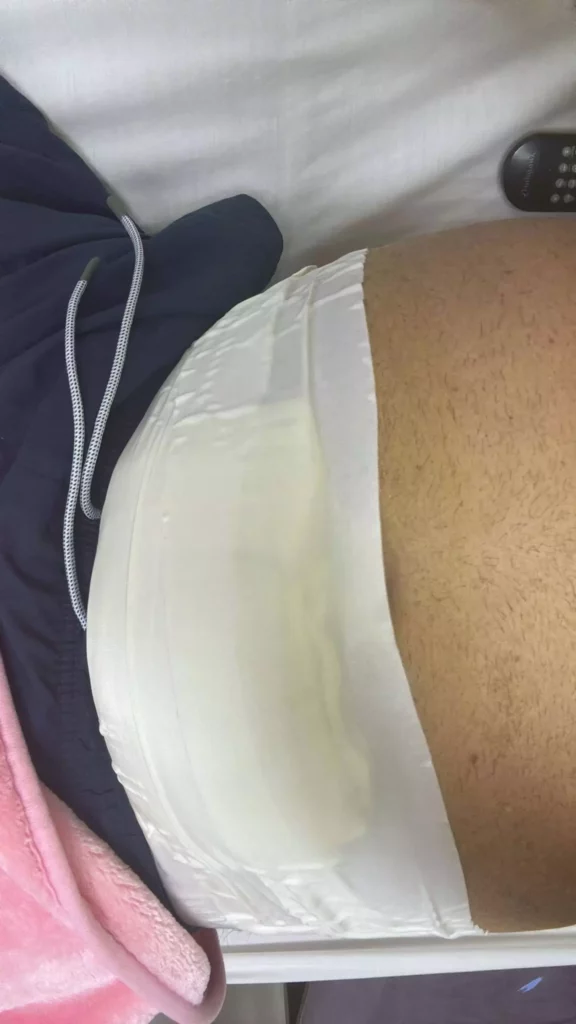
Dr. Tim Cockerill, a senior lecturer in Natural History at Falmouth University, pointed out that although spider bites can bring in bacteria, they are not a direct cause of necrotizing fasciitis. He clarified that reports frequently amplify spiders’ involvement in these situations, resulting in heightened public anxiety.
Nonetheless, the false widow and brown recluse spiders, which are not indigenous to the UK, present a danger when their bites lead to infection. False widows made their way to Britain from the Canary Islands more than a hundred years ago. Although bites from these spiders are uncommon, they can result in significant complications if not addressed appropriately.
Nigel, now in recovery, is emphasizing the importance of taking spider bites seriously in the UK. “I thought it only right to tell everyone on the Isles of Scilly to be careful and check for spiders,” he said.
Although cases of necrotizing fasciitis resulting from spider bites are uncommon, they can occur, as demonstrated by Nigel’s experience. He wishes that sharing his experience will guide others away from the intense suffering and perilous circumstances he faced.
Nigel’s experience highlights the serious reality that even minor bites can have fatal consequences. His message is unequivocal: if you ever think a spider bite is worsening, get medical help right away.
A seemingly small annoyance has the potential to rapidly transform into a struggle for existence. The NHS indicates that although hospitalizations due to venomous spider bites are uncommon, there are instances where infections resulting from these bites can cause serious health complications.
Nigel’s situation highlights the rapid shift that can occur in health matters and underscores the necessity of taking symptoms seriously. Ultimately, while Nigel’s vacation took a turn for the worse, he expresses gratitude for his survival, even in light of the open wound and the challenging journey ahead for recovery.
“I can’t go diving or snorkelling, I can’t go to the beach in case sand gets in the wound,” Nigel reflected. “But I’m just glad I’m still here.”
Feature Image Credit: (Jam Press)

